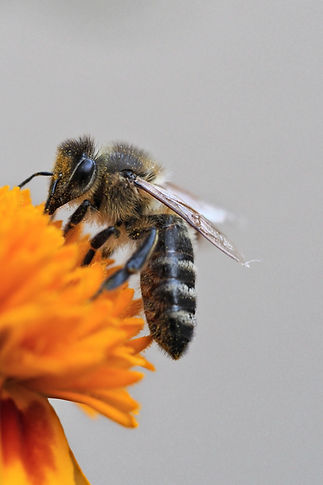

Ralph @Pixabay
Research
THE PROBLEM
Urban development presents a paradox. While cities create economic opportunities and social mobility, they also drive environmental degradation, biodiversity loss, and deepen socio-economic inequalities. The challenges differ across the Global North and South, shaped by distinct ecological, social, and economic factors. Within this complex urban fabric, UrbanBEE envisions a network for nature—revitalising biodiversity while transforming urban residents into active stewards of their environment, one patch of nature at a time.

@Wix

Markus E @Pixabay
OUR RESEARCH
Pollinator populations—critical for maintaining ecosystem functions—are in decline across urban landscapes. Addressing this requires scalable, adaptable solutions that work across diverse urban settings while ensuring that interventions are sensitive to local environmental and social contexts.
UrbanBEE bridges citizen science with urban biodiversity research to explore two critical questions:
-
How can nature-based solutions (NBS) be effectively scaled across different cities?
-
How can local knowledge and diverse perspectives shape decision-making for urban biodiversity conservation?
By merging community engagement with scientific inquiry, UrbanBEE provides a deeper understanding of biodiversity dynamics in cities. This ensures that conservation solutions are realistic, locally grounded, and beneficial for both biodiversity and human well-being.
For more information on Nature-based Solutions: https://www.biodiversa.eu/2023/06/05/2023-2024-joint-call/
OBJECTIVES
1. Scaling Urban Biodiversity Interventions – Deploying solitary bee hotels across socio-ecological gradients in African and European cities to both support pollinators and advance research on biodiversity in urban spaces.
2. Engaging Urban Communities in Science – Encouraging city residents to actively monitor and contribute data, strengthening human-nature connections while enhancing public understanding of biodiversity conservation.
3. Driving Transformative Change –
Integrating biodiversity conservation with community engagement, ensuring research leads to adaptable, evidence-based strategies for cities worldwide.



MAIN ACTIVITIES
1. Deploying Bee Hotels Across Multiple Cities
A decentralized approach to biodiversity conservation that supports pollination networks and promotes urban biodiversity.
2. Empowering Citizen Scientists
Encouraging people from all socio-economic backgrounds to host, monitor, and document solitary bee activity, using a simple and scalable approach.
3. Conducting In-Depth Urban Biodiversity Research
Studying the links between biodiversity and human well-being, addressing how NBS can work across different urban contexts, and identifying ways to strengthen biodiversity stewardship.
FUNDING PARTNERS
UrbanBEE is funded by Biodiversa+ under the 2023–2024 Joint Call: “Nature-based solutions for biodiversity, human well-being, and transformative change.” This initiative brings together researchers, urban planners, and local communities across multiple countries.
Learn More About Biodiversa+ Here = https://www.biodiversa.eu/


Ralph Ruppert @Pixabay
STAY UPDATED
As research findings emerge, this page will be updated with scientific publications, key insights, and policy recommendations.
For research inquiries, contact us at: myurbanbeeproject@gmail.com